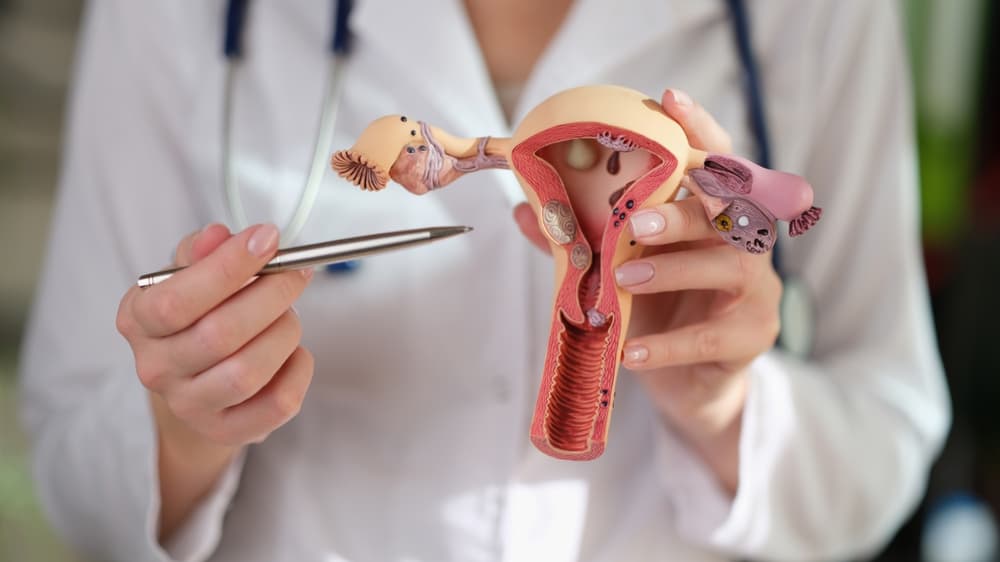For many couples, the path to parenthood can be challenging. Fertility issues, which affect both men and women, can lead to disappointment and frustration. One challenge can arise for women: a thin endometrium, where the uterus lining fails to thicken adequately for successful embryo implantation. This can greatly reduce the chances of conception and a healthy pregnancy.
Recently, there's been interest in hyperbaric oxygen therapy (HBOT) as a treatment for thin endometrium and fertility problems. HBOT involves breathing pure oxygen in a pressurized chamber, enhancing oxygen absorption into the bloodstream and tissues. This increased oxygen availability offers health benefits, promoting tissue repair and regeneration.
This blog post explores the potential of HBOT as a supportive treatment for thin endometrium and its impact on infertility.
Thin Endometrium and Female Fertility Challenges

The endometrium is the inner lining of the uterus that thickens and sheds each month during a woman's menstrual cycle. The endometrium should reach a minimum thickness of 7 mm for successful embryo implantation. Anything less than this is considered a thin endometrium, affecting the implantation and growth of an embryo.
Certain factors can contribute to a thin endometrium, including:
- Age: Endometrial thickness naturally decreases with age, particularly after age 35.
- Hormonal imbalances: Issues with estrogen and progesterone levels can affect the growth and development of the endometrium.
- Scarring or adhesions: Uterine surgeries or other procedures can lead to scar tissue and adhesions, impacting the endometrium’s thickness and receptivity.
- Medical conditions: Certain conditions, such as endometriosis and autoimmune diseases, can also contribute to a thin endometrium.
When the endometrium is thin, it can make it difficult for an embryo to implant. This affects fertility and leads to recurrent pregnancy loss or difficulty achieving pregnancy altogether. Thus, finding effective solutions to thin endometrium is crucial for fertility support and increasing chances of successful pregnancy.
Conditions Related to Thin Endometrium Aided by HBOT

HBOT has shown promising results in treating various conditions related to thin endometrium, including:
- Asherman's syndrome: This condition involves scarring and adhesion within the uterine cavity, leading to a thin endometrium. HBOT can promote tissue healing and reduce scarring, potentially improving endometrial thickness.
- Endometriosis: This chronic inflammatory condition can affect the endometrium and its ability to thicken properly. HBOT's anti-inflammatory properties may relieve endometriosis symptoms and potentially support endometrial growth.
- Previous uterine surgery: Procedures like hysteroscopies or myomectomy surgeries to remove uterine fibroids can damage the endometrium, leading to thinning. HBOT can promote tissue regeneration and potentially improve endometrial thickness. As a result, it can improve fertility outcomes for women who have had previous uterine surgeries.
Hyperbaric Oxygen Therapy (HBOT) and Its Potential Benefits for Fertility

In addition to its potential for supporting thin endometrium, HBOT may offer other fertility benefits. These include:
Increased Oxygenation
HBOT improves oxygen levels in the body, which is vital for supporting reproductive function. Oxygen is essential for cellular metabolism, including egg and sperm count. Improved blood oxygen levels may enhance fertility outcomes.
Reduced Inflammation
Chronic inflammation can negatively impact fertility by affecting hormonal balance and creating an unhealthy environment for embryo implantation. HBOT's anti-inflammatory properties may help reduce inflammation and promote a more conducive environment for conception.
Stimulated Angiogenesis
Angiogenesis is the process of forming new blood vessels. HBOT can stimulate angiogenesis, potentially improving the thickness and quality of the endometrial lining. Additionally, it provides increased blood flow to the reproductive system. This may support a healthy pregnancy and reduce the risk of miscarriage.
Enhanced Stem Cell Activation
HBOT has been found to activate stem cells, which can promote tissue repair and regeneration. This may be beneficial for women with thin endometrium or other fertility challenges. Stem cells can help repair damaged tissues and improve endometrial thickness, potentially increasing the chances of successful embryo implantation.
Combining HBOT With Traditional Fertility Treatments

Although HBOT shows promise in supporting thin endometrium and fertility challenges, it is not a substitute for traditional fertility treatments. Instead, it can be combined with other therapies to enhance their effectiveness.
HBOT may be beneficial for women undergoing assisted reproductive techniques such as:
- In Vitro Fertilization (IVF): HBOT may improve endometrial receptivity and support a healthy pregnancy during IVF. Combining HBOT with IVF can potentially increase the chances of successful implantation and pregnancy.
- Intrauterine Insemination (IUI): HBOT may also enhance the effectiveness of IUI by promoting a healthier endometrial environment for improving sperm and embryo interaction.
- Medications: HBOT can complement the effects of fertility medications by promoting a more receptive endometrial lining. It may also help reduce the side effects of these medications.
While HBOT can aid fertility treatments, it's crucial to consult your healthcare provider about complementing your treatment with HBOT. They can assess your situation and recommend the most appropriate treatment plan.
Bay Area Hyperbarics Has Aided Patients During Fertility Treatment
At Bay Area Hyperbarics, we have helped a number of patients while they undergo fertility treatment to help them achieve pregnancy. Of the patients who have come in for hyperbarics while undergoing fertility treatment, 90% of them have had successful pregnancies and given birth to healthy babies.
Unveil the Potential of HBOT for Treating Thin Endometrium and Fertility Issues
HBOT provides hope for women with thin endometrium and fertility issues, potentially increasing their chances of conception and successful pregnancy. While research is ongoing, the potential benefits of HBOT, particularly in conjunction with traditional fertility treatments, are gaining significant attention.
At Bay Area Hyperbarics, we are dedicated to providing comprehensive and compassionate care for patients seeking HBOT as a complementary therapy for fertility challenges. We offer personalized treatment plans and a supportive environment to help you navigate your journey towards parenthood. To learn more about HBOT and its potential benefits for your fertility, please contact us today to schedule a consultation.


